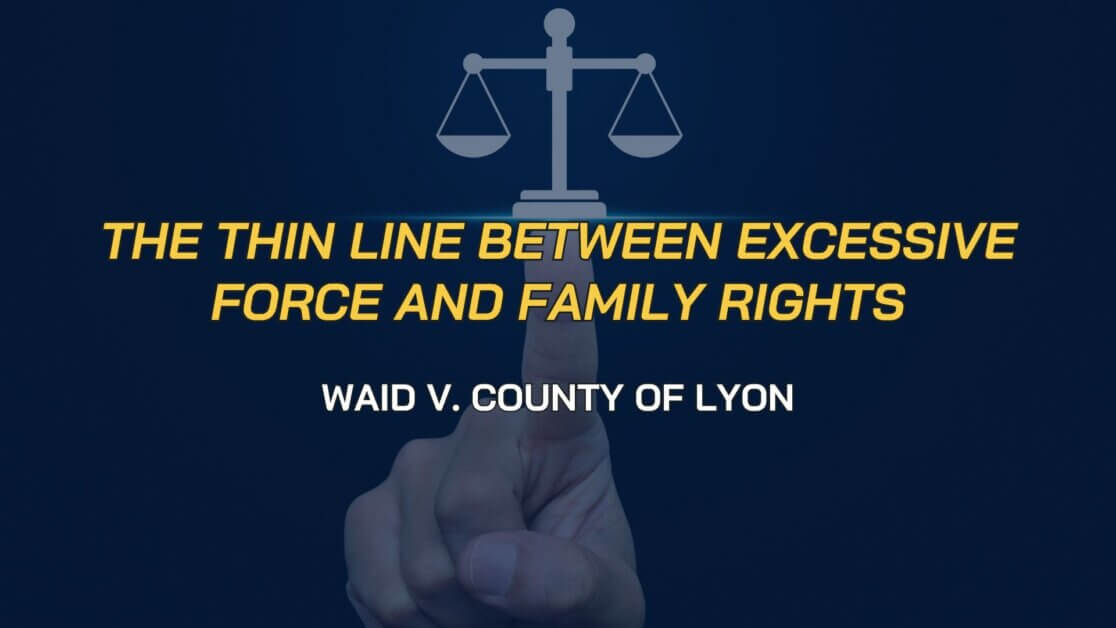The recent case of Villarreal v. City of Laredo has brought attention to the First Amendment rights of citizens and the validity of qualified immunity to law enforcement officers.1 The U.S. Court of Appeals for the Fifth Circuit heard arguments regarding the case of a controversial citizen journalist from Laredo Texas, Priscilla Villarreal, who was arrested in 2017.
Priscilla Villarreal is facing a felony charge pursuant to 39.06(c) of the Texas Penal Code, which makes it a crime for someone to ask for or receive non-public information from a public servant intending to advance or harm another person. The charges date back to 2017, when Villarreal reported on a U.S. Border Patrol agent who committed suicide, after learning about the incident from an employee who worked close to the scene of the suicide. Villarreal contacted an officer from the Laredo Police Department and subsequently received confirmation of the border patrol agent’s name. The journalist disclosed the agent’s name within her report, prior to the release of a formal statement issued by law enforcement officers. Within a month of this initial report, Villarreal reached out to the same Laredo officer for confirmation regarding the names of individuals involved in a different event. Following confirmation, Villarreal published the last name of a family involved in a fatal car accident in Laredo.
Upon receiving word that there was a warrant out for her arrest, Villarreal voluntarily turned herself in to the Department. Given the controversial nature surrounding her reporting tactics, officers responded to Villarreal’s presence by taking photographs, and mocking her throughout the duration of the Booking process.
Following the charges, Villarreal filed suit under 42 U.S.C. § 1983 against the Laredo Police Department, the city of Laredo, and Webb County, alleging violations of her First, Fourth, and Fourteenth Amendment rights. Villarreal claimed that her First Amendment rights were violated when Laredo officers arrested her for asking law enforcement questions and reporting on their responses. Additionally, she contended that her arrest was an unlawful seizure in violation of the Fourth Amendment, as the officials did not have probable cause to arrest her for violating Section 39.06(c) of the Texas Penal Code. The Fifth Circuit agreed with Villarreal’s claims, and the court held that her arrest was indeed unconstitutional under the First and Fourth Amendments. Therefore, the court allowed her lawsuit to proceed against the Laredo Police Department, the city of Laredo, and Webb County.
ANALYSIS & IMPLICATIONS
On appeal, the Fifth Circuit considered two issues. First, whether the arrest violated Villarreal’s First Amendment right to freedom of speech and freedom of the press. Second, whether the officers lacked probable cause for the arrest, in violation of the Fourth Amendment.
In assessing the First Amendment issue, the Court determined that common practice by journalists is to ask for nonpublic information from public officials. Like any other citizen journalist, Villareal has the right to ask an officer a question without fear of being arrested. The Fifth Circuit ruled that Mrs. Villarreal’s First Amendment rights were clearly established when she asked government officials questions and reported their responses. The court found that a reasonable officer would understand that arresting someone for exercising this right would be unconstitutional.
In looking to the Fourth Amendment issue, the Court reminded officers that even when an arrest warrant exists, the standard to assess a Fourth Amendment wrongful arrest claim looks to “whether a reasonably well-trained officer would have known that his affidavit failed to establish probable cause and that they should not have applied for the warrant.” In reaching their decision, the Fifth Circuit noted that the Supreme Court has consistently held that an officer’s determination of probable cause may not be based on an unjustifiable standard, such as speech protected by the First Amendment. The application of Supreme Court jurisprudence to the facts of this case, Laredo officers utilized this unjustifiable standard as a basis for arresting Villareal. The Fifth Circuit found that no reasonably competent officer could have found probable cause to arrest Villareal under § 39.06(c), for the same reasons that Laredo officers violated her clearly established First Amendment rights.
To assess the validity of qualified immunity in this case, the court cited Hope v. Pelzer, a 2002 United States Supreme Court case to remind police officers of an important principle on qualified immunity: “An officer who commits a patently obvious violation of the Constitution is not entitled to qualified immunity.” Here, the Court explained, it should have been patently obvious to any reasonable police officer that arresting Villareal for asking a question is a blatant violation of her rights, which would defeat a finding of qualified immunity for Laredo officers.
CONCLUSION
Villarreal v. City of Laredo provides important guidance on the protections afforded to citizen journalists by the First Amendment. This case emphasizes that it is essential for law enforcement officers and agencies to recognize the limits of law enforcement authority in respect of the rights of individuals to gather and report information. This case highlights the importance of ensuring that arrests are made with probable cause and not based upon unjustifiable standards such as protected speech.
The Fifth Circuit’s decision in Villarreal v. City of Laredo is subject to further review, as the case has been reheard en banc in January 2023. Officers should stay informed about any new developments in this case and adjust their practices accordingly.
TAKEAWAYS:
- Citizens, including journalists and citizen journalists, have the right to ask questions of public officials and report on their responses without fear of arrest or retaliation. This right must be respected by law enforcement officers.
- Law enforcement officials should remember that an officer who commits a clear violation of constitutional rights is not entitled to qualified immunity.
- Officers should ensure they have valid probable cause before making an arrest to avoid infringing on citizens’ constitutional rights. As we saw today, probable cause cannot be established through an unjustifiable standard, such as speech protected by the First Amendment.
- The Fifth Circuit’s decision in Villarreal v. City of Laredo is subject to further review, as the case has been reheard en banc in January 2023. Officers should stay informed about any new developments in this case and adjust their practices accordingly.
- The Villarreal case serves as an essential reminder for law enforcement officers to respect and uphold the constitutional rights of citizens, including their First Amendment rights to free speech and freedom of the press. By being mindful of these rights and ensuring that arrests are made based on valid probable cause, officers can avoid infringing on citizens’ rights and protect themselves from potential liability.
1 Villarreal v. City of Laredo, 52 F.4th 265 (5th Cir. 2022)



